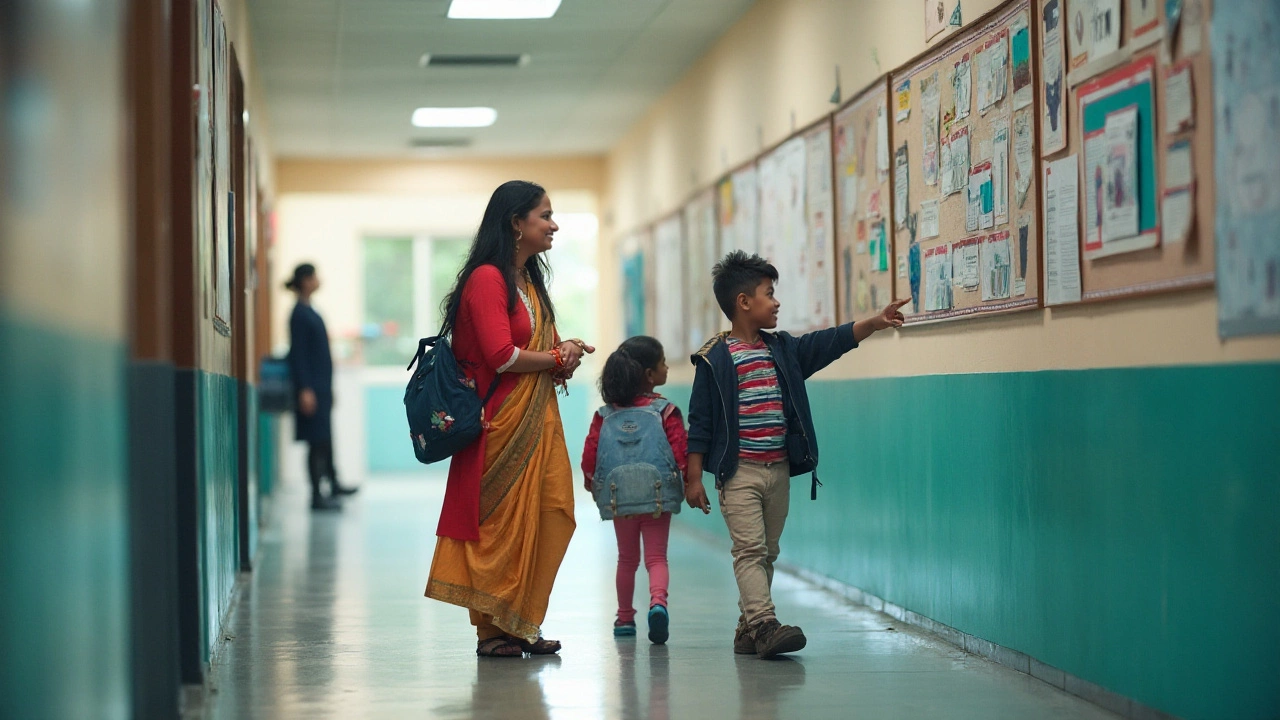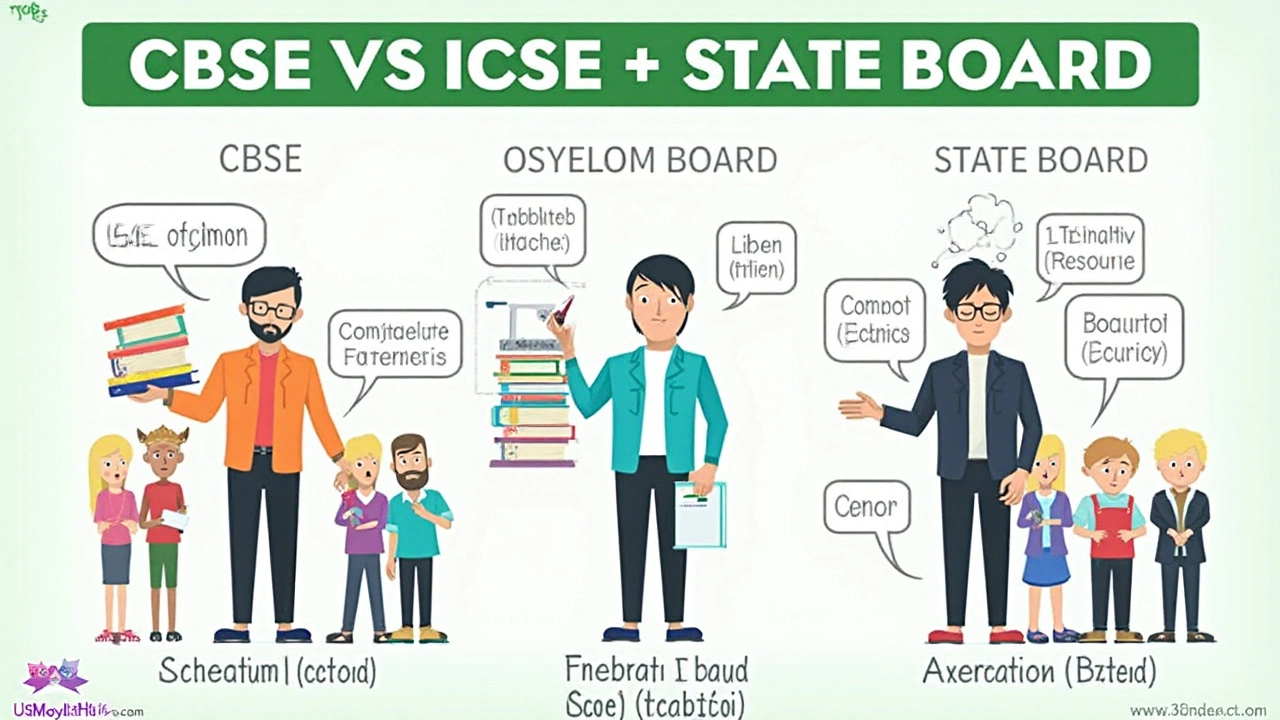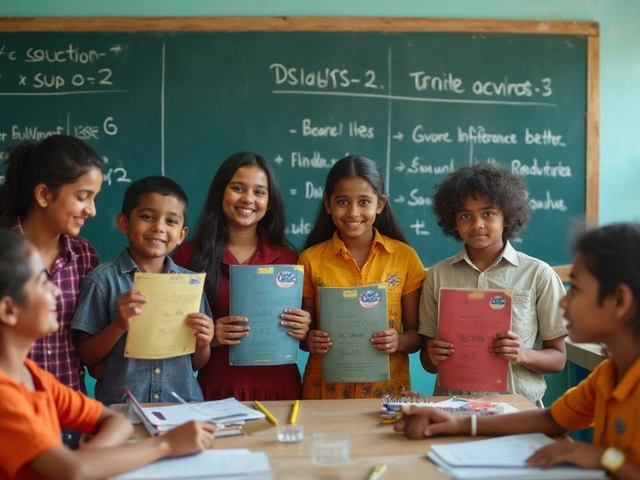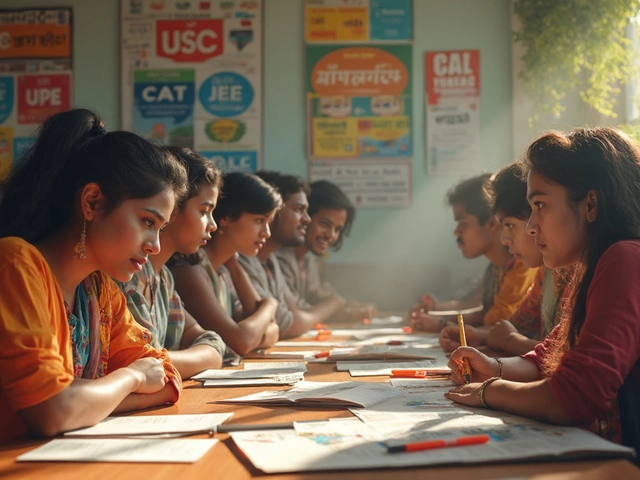
Choosing the Right Board for Your Child: Is CBSE the Best Option?
Deciding on the right educational board for your child is a crucial step in shaping their future. With a plethora of options available, many parents find themselves grappling with the decision. Among the popular choices, the Central Board of Secondary Education, or CBSE, is highly regarded for its structured approach and widespread reach in India and abroad.
The board offers a curriculum that aims at developing a strong foundation in students, focusing on science and mathematics. As parents, it's vital to understand how CBSE might align with your child's unique needs and aspirations. This article dives deep into what CBSE has to offer, comparing it against other educational boards, and providing practical tips to help you make an informed choice.
- Understanding the CBSE Board
- Comparing CBSE with Other Boards
- Advantages of the CBSE Syllabus
- Potential Drawbacks of Choosing CBSE
- Tips for Parents Making the Decision
Understanding the CBSE Board
The Central Board of Secondary Education, commonly referred to as CBSE, is one of the most prestigious educational boards in India. Established in 1962, it functions under the governance of the Union Government of India. The board's primary focus is to provide education that encourages innovation and overall personal growth, allowing students to compete globally. CBSE's syllabus is crafted to be less cumbersome compared to other Indian school boards. It emphasizes the application of knowledge rather than rote learning, which helps students develop a deeper understanding of concepts.
CBSE is known for its inclusive educational approach, adapting constantly to educational needs on a domestic as well as international level. More than 21,000 schools in India and about 220 schools in over 28 foreign countries are affiliated with CBSE, which speaks volumes about its reach and popularity. The board administers two main exams: the All India Secondary School Examination (AISSE) for 10th-grade students and the All India Senior School Certificate Examination (AISSCE) for 12th-grade students, both designed meticulously to assess the knowledge and skills students have acquired.
The CBSE curriculum integrates a balanced selection of subjects ranging from sciences to languages, arts, and humanities. The core commitment to producing well-rounded individuals is also mirrored in its extracurricular integration. It's noteworthy how actuarial studies have shown that children exposed to the CBSE curriculum display significant improvement in quantitative and analytical reasoning by the time they reach higher education levels. A study by the National Institute of Education Management and Administration highlighted that 85% of students believed the CBSE education system played a pivotal role in boosting their logical thinking capabilities.
One remarkable aspect of the CBSE board is its continuous effort to update curriculum and examination patterns in response to dynamic global standards. New methodologies and technologies are integrated into the learning environment to ensure students receive a well-rounded education. For instance, the implementation of computer-based assessments reflects a modern approach towards examination that echoes the growing digitalization across sectors. Recent initiatives also include life skills education, entrepreneurship, and vocational courses, which are oriented towards enhancing employability and practical life applications of the student body.
"Education is the most powerful weapon which you can use to change the world," said Nelson Mandela. The CBSE board echoes this sentiment by offering education that does not only prioritize academic excellence but also values the development of life skills and ethical values.
The board has also spearheaded several innovative programs like the Open Text Based Assessment (OTBA), an attempt to lessen students' stress through the promotion of critical thinking and application-based learning. CBSE promotes a learner-centered method via continuous and comprehensive evaluation (CCE), which encourages both students and teachers to look beyond test scores. Under the CCE, education is an ongoing process with regular assessments aimed at uncovering students' hidden potential. This has helped nurture many creative and critical thinkers who can translate theoretical knowledge into practical, real-world solutions.
Comparing CBSE with Other Boards
As parents, choosing the right educational path for our children often feels like a monumental task. The CBSE board offers numerous advantages, but understanding how it fares against other options is key. Let's delve into some popular educational boards and weigh their offerings against those of CBSE. The Indian education system is diverse, with boards like the Indian Certificate of Secondary Education (ICSE), International Baccalaureate (IB), and various state boards each presenting unique syllabi and opportunities. Understanding their distinct philosophies and structures can guide you in making an informed decision.
The ICSE board, known for its rigorous curriculum, places a strong emphasis on arts, science, and language proficiency. Unlike the CBSE board, which leans towards a more traditional style with a priority on science and mathematics, ICSE fosters a broad-based education, encouraging analytical and creative skills. For children with a bent for holistic development, ICSE could be more appealing. Meanwhile, CBSE's structure is often valued for its straightforward approach to key academic subjects, preparing students for national level competitive exams like JEE and NEET.
On the global front, the IB board takes a completely different approach, emphasizing critical thinking and global contexts. This board is designed to develop independent learning, creativity, and world readiness, integrating subjects within transdisciplinary themes. While CBSE board aligns closely with the Indian educational context, making it a favorite among government schools and Kendriya Vidyalayas, IB might be a consideration for those eyeing international opportunities. However, accessibility and cost are often constraints for many families when choosing an IB school.
State boards, on the other hand, tend to cater to local needs and languages, providing education in regional languages in addition to English. These boards are favored for their deep-rooted community ties and cost effectiveness. CBSE, with its uniformity in the curriculum across India, becomes advantageous if you anticipate relocations or are aiming for schools with accessibility across the nation. Some parents believe that the standardized education of CBSE provides edge in national entrance exams due to its focus on core subjects.
In a recent survey, it was noted that a significant percentage of students under CBSE were able to access scholarship opportunities and perform better in competitive exams. Yet, it's crucial to recognize that each board has its strengths and should align with your child’s learning style and academic goals.
As noted by an educator from the National Council of Educational Research and Training, “Each board provides its own unique environment—it’s less about which is better and more about what fits your child’s aspirations and potential better.”
To summarize, while the CBSE board offers a standard academic structure conducive for competitive examinations and relocations, alternatives such as ICSE and IB provide broader, creative, and independent learning arenas. Reflecting on what suits your child’s personality and future goals is paramount in making this decision.

Advantages of the CBSE Syllabus
The Central Board of Secondary Education, known as CBSE, offers a curriculum renowned for its uniformity and standardized approach, which many argue opens a world of opportunities for students. One of the primary advantages is its alignment with several competitive exams at the national level, including prestigious ones like JEE and NEET. This alignment ensures that students under the CBSE board cover the essentials required for these exams, giving them a head start and familiarizing them with the patterns of questioning and subject relevance.
Additionally, CBSE’s school curriculum is structured to promote a child's holistic development. While it emphasizes core subjects like mathematics and science, it does not overlook arts, physical education, and extracurricular activities, ensuring a balanced approach to education. Moreover, with constant updates and revisions, the CBSE syllabus integrates modern educational techniques and recent discoveries, keeping the learning material fresh and relevant. It’s a revolutionary step that ensures students aren't just memorizing facts but are prepared to apply knowledge in real-world scenarios.
One more pivotal aspect is the vast network of CBSE schools across India and even abroad. This ensures consistency in education for families who may need to relocate, as the transition tends to be smooth with minimal disruption to the student's academic life. Considering the diverse culture, presence in multiple countries also opens up opportunities for cultural exchanges, broadening a student's perspective beyond academics. This global recognition also adds value when applying to universities or colleges worldwide, as they often are well aware of the rigor of the CBSE board.
The board's focus on environmental education and social sciences also plays a significant role in shaping socially responsible individuals. By including subjects that stress environmental protection and social ethics, CBSE encourages its students to develop a sense of responsibility towards society and the planet. This creates not only knowledgeable students but compassionate global citizens. An educator once noted,
"The way CBSE integrates life skills into its curriculum is commendable—it’s education for the head and heart."Such testimonials reflect the board's mission of nurturing well-rounded individuals.
Lastly, CBSE's evaluation system, which emphasizes continuous assessment alongside regular exams, helps reduce undue exam pressure on students. The Continuous and Comprehensive Evaluation (CCE) encourages students to be consistent in their studies, understand concepts thoroughly, and participate actively in class. This approach significantly reduces rote learning, serving as a confidence booster for students who might otherwise excel in practicals and projects rather than traditional pen-paper tests.
Potential Drawbacks of Choosing CBSE
While the CBSE board is popular for its structured approach, there are certain aspects that some parents and educators find less appealing. One notable concern is the board's emphasis on rote memorization, especially in subjects like science and mathematics. This can limit a student's ability to engage in critical thinking and problem-solving, skills that are essential in higher education and the workforce. As students often focus on reproducing textbook content to score high grades, the exploration of practical applications and innovative thinking may take a back seat. Although efforts are being made by the board to modernize and incorporate more experiential learning, this transformation has been gradual.
Another critique is the lack of flexibility in the school curriculum. The rigid structure might not cater well to students with diverse learning styles or interests outside the traditional academic subjects. While the board provides a strong academic foundation, it might not offer enough scope for artistic or vocational pursuits, which can be limiting for students with talents and aspirations in those areas. Moreover, the frequent changes in the syllabus and exam patterns can lead to confusion and stress among students and educators alike, as adaptation to the new norms requires adjustments in teaching and learning styles.
"Education is what remains after one has forgotten what one has learned in school." - Albert Einstein
Additionally, the competitive nature associated with the CBSE syllabus can often result in undue stress on students. The high-stakes examinations require consistent high performance, which can sometimes overshadow the joy of learning. This academic pressure might not be suitable for every child, especially those who thrive in less competitive, more collaborative environments. Parents have reported concerns about the mental health impacts of such pressure, and educators often advocate for balanced approaches that include both academic and emotional learning components.
While CBSE's reputation for rigorous academics is well-earned, it may not align with every family’s educational philosophy. For parents considering alternatives, the choice might involve boards that emphasize holistic development, integrating more varied subjects and life skills. As educational landscapes evolve, it's essential for parents to weigh the potential drawbacks carefully against their child’s strengths and long-term goals in order to make an informed decision that suits their individual needs.

Tips for Parents Making the Decision
Choosing the right educational board for your child, such as the CBSE board, is more than just an academic decision—it’s about considering your child's entire learning ecosystem. The first thing parents should reflect on is where their child thrives best, be it in a more structured setting or with a curriculum that encourages creativity and critical thinking. Evaluating the learning style that resonates with your child can serve as a compass in making this significant choice.
The CBSE board is known for its comprehensive syllabus and standard assessment methods, which can be beneficial for students aiming to pursue higher education in India, particularly in Engg and Medical fields, as many competitive exams are based on the CBSE syllabus. Parents should also consider the school's teaching methods, the availability of extracurricular activities, and access to resources, which contribute vastly to a child's development. Understanding these aspects can help gauge the potential benefits and challenges your child might face.
Seek Expert Insights
Another effective approach is consulting with educators and other parents who have chosen different education boards. Gathering diverse perspectives can provide valuable insights into how each board functions in real-world scenarios. As Dr. Radhika Iyengar, an education policy expert, remarks,
"The choice of board should align with a child’s long-term goals and personal learning strategies. Every child is unique, and so is their educational journey.”Such guidance can shine a light on unforeseen dynamics that may impact your decision-making.
Weighing the Academic and Lifestyle Balance
It is essential to strike a balance between academic rigor and lifestyle adaptability. If your family relocates frequently, the CBSE board may offer the consistency and accessibility you're seeking, thanks to its widespread presence in India and internationally. However, focus on whether the academic pressures aligned with this board are in sync with what your child can comfortably handle. Consider arranging visits to various schools to gain a firsthand feel of the environment and curriculum approach, which can be decisive factors.
Financial Considerations
Lastly, take a moment to assess the financial implications associated with each board. Education is an investment, and it’s crucial to ensure that the chosen board and school offer value aligned with your family budget. Tuition fees, additional costs for materials, activities, and potential long-term costs for coaching or other educational support should not be overlooked. Paradoxically, a higher cost does not always equate to better quality, and the best investment lies in finding a suitable fit for your child's needs, be it within the CBSE paradigm or another educational structure.






Write a comment